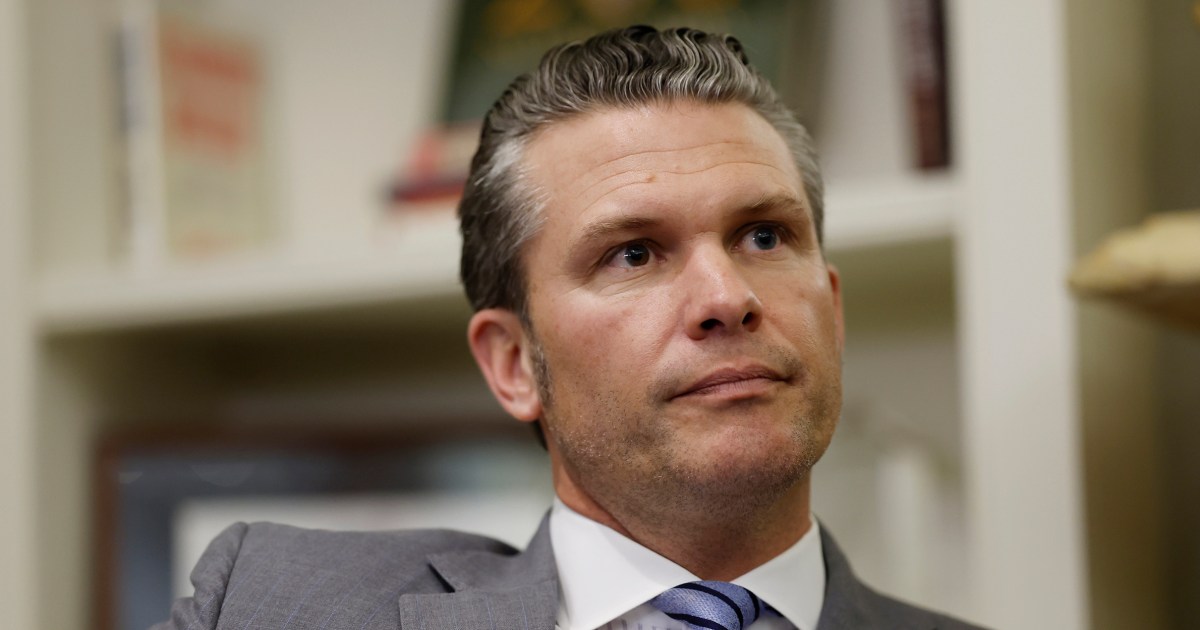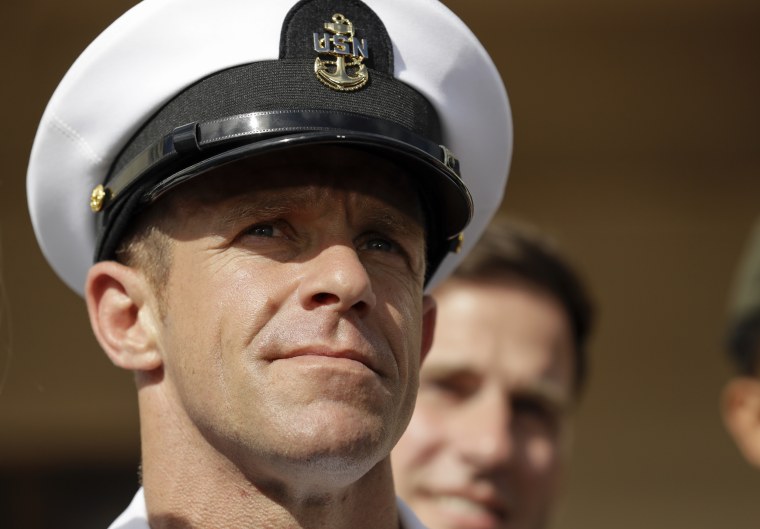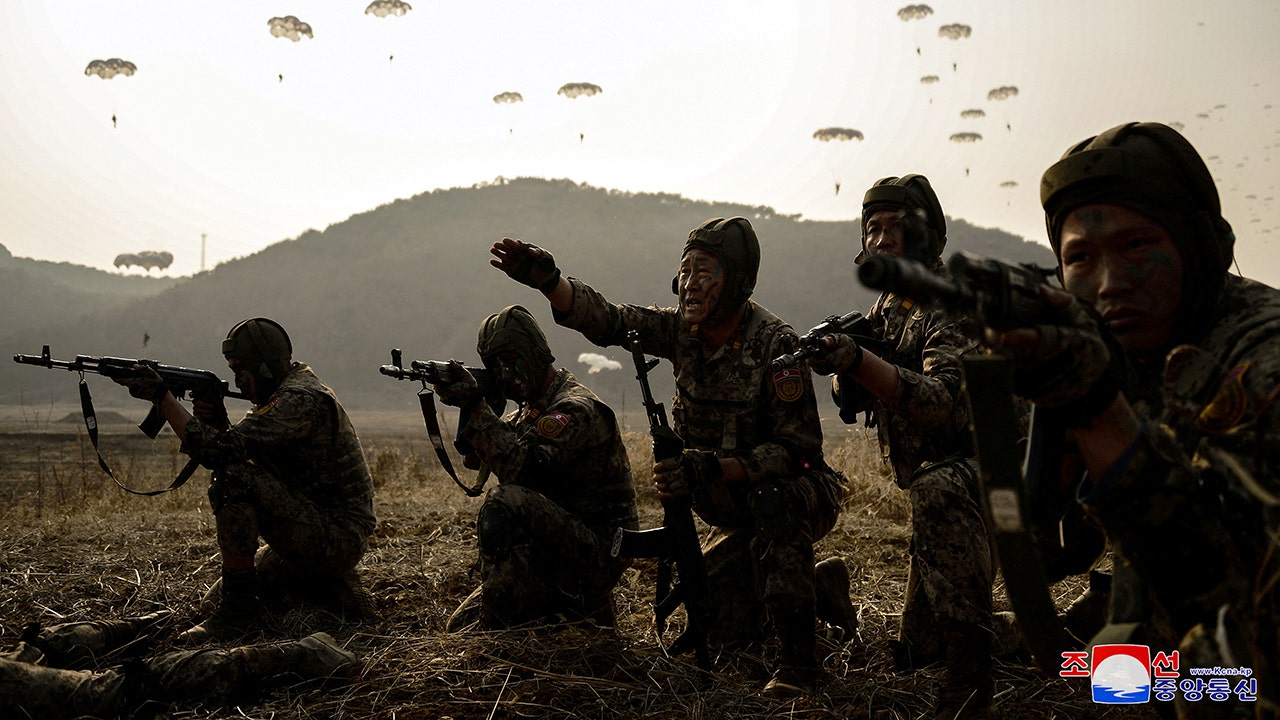World
Some military officers worry that Pete Hegseth could turn a blind eye to U.S. war crimes

President-elect Donald Trump’s pick for defense secretary, Pete Hegseth, rose to prominence partly based on his searing criticism on Fox News of the rules governing U.S. troops in combat. Having served in Iraq and Afghanistan with the Army National Guard, he argued that American soldiers were hampered by excessive constraints battling jihadist extremists who “fight like savages.”
“In some cases, our units were so boxed in by rules and regulations and political correctness, we even second-guess ourselves,” Hegseth wrote in his book “The War on Warriors” last year. “That needs to end. Count me out on the Monday morning quarterbacking—I’m with the American warfighter, all the way”
At his Senate confirmation hearing Tuesday, Hegseth is likely to be asked about allegations of sexual assault, excessive drinking and mismanagement in his previous jobs.
But some current and former military officers say Hegseth’s strident statements about war crimes prosecutions of U.S. troops — and his advocacy for service members who were convicted by fellow service members — risk undermining core principles that have shaped the American military for decades.
A current military officer who asked not to be named said Hegseth’s stance “should be disqualifying.” And Paul Eaton, a retired Army major general, said Hegseth’s support for service members accused of — or convicted of — crimes on the battlefield could have ripple effects through the military.
“He condoned murder and execution,” Eaton said, referring to Hegseth’s interventions in cases as a Fox News contributor. “That will create a stunning problem for every senior noncommissioned officer out there, every leader down to the squad leader.”
Tim Parlatore, Hegseth’s lawyer, said that Trump’s pick has used colorful language to convey his views about overly restrictive rules of engagement for U.S. troops but that his critics have misinterpreted his comments.
“He is not in any way advocating that anybody not follow the Law of Armed Conflict,” Parlatore said. “He is saying that the way that has been interpreted at the local level is overly restrictive.”
From the start of their training and at every promotion throughout their careers. U.S. troops receive training and education on lawful conduct in battle. Commanders see the training as foundational for the armed services, for both moral and practical reasons.
Abiding by the code ensures troops maintain discipline and focus on military objectives instead of criminal behavior, current and former military officers say. Committing war crimes and atrocities also potentially endangers any troops who are captured by the enemy.
“There have to be limits on the conduct of those who are fighting,” said Gary Solis, a Marine veteran who served in Vietnam and taught at the United States Military Academy at West Point. “Otherwise it becomes nothing more than murder.”
Trying to reassure lawmakers
Although Hegseth has publicly questioned whether the Geneva Conventions are relevant to modern warfare against extremists who do not obey them, he has been trying to clarify his stance with lawmakers.
In recent meetings with Republican senators, Hegseth has said he has no intention of discarding the Geneva Conventions or the U.S. military legal code, a source close to Hegseth and a Republican congressional aide said. Hegseth has told them that he believes service members should continue to abide by them.
Parlatore said Hegseth’s view is that the Geneva Conventions were mainly shaped by the World War II era and do not take into account the kind of adversaries the U.S. has faced recently, such as Al Qaeda and the Islamic State terrorist group.
Given that those militants represent no internationally recognized governments, wear no uniforms, make no distinction between civilians or combatants and respect no rules about prisoners of war, Hegseth believes the Geneva Conventions “could stand an update” to reflect those new realities on the battlefield, Parlatore said.
Hegseth’s criticisms are focused on how military lawyers interpret international agreements and the U.S. military code and how rules of engagement for troops in combat have been overly restrictive and impractical, Parlatore said.
But in “The War on Warriors,” Hegseth appears to dismiss the Geneva Conventions, which were heavily revised after World War II. He writes that U.S. troops “should not fight by rules written by dignified men in mahogany rooms eighty years ago,” an apparent reference to the Geneva Conventions.
Hegseth also writes dismissively about both international law and the U.S. military’s rules of engagement, which he argues were too cautious during his tours in the field.
“I could write five thousand more words on the ins and outs of the philosophy of warfare, the folly of international law, and the crazy maze of rules of engagement,” Hegseth wrote. “But if we’re going to send our boys to fight—and it should be boys—we need to unleash them to win. They need them to be the most ruthless. The most uncompromising. The most overwhelmingly lethal as they can be.”
Eugene Fidell, who teaches military justice at Yale Law School, said the armed forces’ extensive training in the Geneva Conventions and the U.S. military’s code of conduct are designed to overcome the chaos on the battlefield.
“In the fog of war, in the moments of chaos, it’s very easy for people to lose sight of their legal constraints, and that’s why it has to be hammered in that this is important and you cannot set it aside,” Fidell said. “These rules of engagement, they’re there for a reason. You do it because it’s right, and it’s because it’s the law.
Lobbying for pardons
During Trump’s first term, Hegseth got his attention when he championed the cause of three service members who were convicted or accused of war crimes in Afghanistan and Iraq. In appearances on Fox News, Hegseth helped persuade Trump to intervene on their behalf.
In one case, Trump gave a full pardon to Clint Lorance, a former Army lieutenant who was serving out a 19-year sentence for the murder of two civilians in Afghanistan after he was convicted by a jury of fellow service members. Members of Lorance’s unit testified that the two civilians did not pose a threat.
Trump also pardoned Maj. Matthew Golsteyn, an Army special forces officer who was charged with murder for killing an unarmed Afghan he believed was a Taliban bomb maker. And Trump, backed by Hegseth and other conservative commentators, reversed the demotion of Chief Petty Officer Edward Gallagher, a Navy SEAL who was acquitted of murder charges but convicted of posing in a photo next to a captured dead militant.

In all three cases, Hegseth argued that accused or convicted service members were treated unfairly and that the circumstances of each situation had to be taken into account.
Parlatore said that Hegseth does not condone war crimes but that he disagreed with the outcomes of the legal proceedings in those cases. Hegseth also raised no objections to a case involving members of his regiment who were found guilty in connection with the killing of three unarmed Iraqi men.
Trump intervened despite objections from the defense secretary at the time, Mark Esper, and then-Army Secretary Ryan McCarthy. Both senior defense officials maintained that Trump’s action would weaken the military’s justice system and send the wrong signal to troops.
In “The War on Warriors,” Hegseth praised Trump’s moves and suggested that international war crimes laws should not apply to extremists who decline to obey them.
“What do you do if your enemy does not honor the Geneva Conventions?” Hegseth wrote. “We asked it all the time—especially if we want to win. And, for all the briefings, PowerPoint slide decks, and lectures, it was never clear.”
Current and former officers and experts on military justice say Hegseth’s statements and claims raise serious questions about whether he would uphold the military’s core principles for battlefield conduct or even seek to interfere in legal proceedings.
They point out that the U.S. military’s legal code, the Uniform Code of Military Justice, was enacted by Congress 75 years ago, not the Biden administration. It incorporates the principles of the Geneva Conventions and the international Law of Armed Conflict about the treatment of captured fighters, distinguishing between civilian and military targets, proportional responses and avoiding unnecessary suffering.
“Americans fight the way we do because we do believe we’re on the side of good,” said Jason Dempsey, who served for 22 years as an Army infantry officer who was deployed to Iraq and Afghanistan. “To overtly cede that high ground from the start, it would be concerning for allies and a boon to our enemies.”
Dempsey, now an adjunct senior fellow at the Center for a New American Security think tank, acknowledged that some American service members have violated the laws of war. “These are things that admittedly the U.S. military has struggled with, as all militaries do,” he said. “It’s not a secret that not that all Americans act with honor on the battlefield. But these rules are ingrained in troops.”
Military veterans and legal experts say Hegseth’s rhetoric could send a confusing message to service members about what rules they should obey and whether they should report those who violate the code of conduct for the armed forces
“You have to take a hard line against that kind of behavior in the name of righteousness of the cause and for combat effectiveness,” Dempsey said.
Solis, the Marine veteran and former military judge advocate, said Hegseth’s rhetoric could cause service members to question whether their leaders will uphold the military’s code.
“There have to be rules that are observed, or at least that are in place, for punishment of those who violate them,” Solis said. “If we don’t observe the laws of armed conflict, we become that which we fight. We become what we’re fighting. We become no better than our enemies.”










